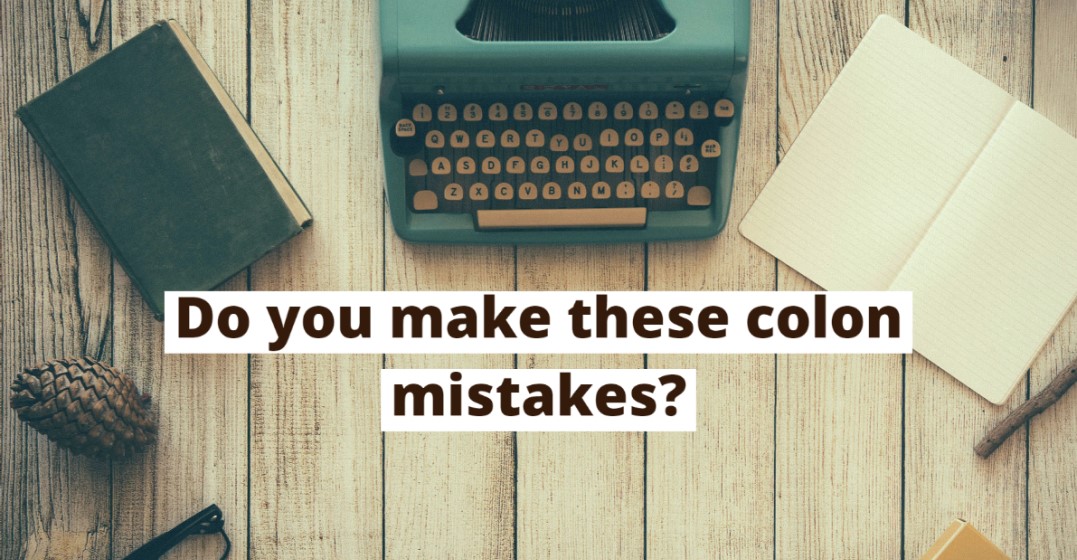3 Common colon mistakes
Published on May 4, 2020 / Updated on January 9, 2024
The colon: The king of clarification and the third out of one of the three most understood punctuation marks. Clearly, the colon is a thing that confuses us. Due to its misuse and the fact the colon has a brother, the semicolon, let’s explore how this powerful punctuation mark is misunderstood. We’ve comprised 3 common colon mistakes for you, so you won’t have to commit them again!
Before we go over colon mistakes, let’s define what the colon is. According to Merriam-Webster dictionary, it has five definitions. The first few cover definitions of its usage: the part of a large intestine and secondly, in Greek, it is a “rhythmical unit of an utterance” as well as a noun for a colonial farmer for example. (So beyond our grammatical point we are trying to make!).
With its three definitions out the way, we are onto the good stuff: a punctuation mark and a sign. In other words, the colon is used to direct attention to lists, explanations etc. or between parts of a numerical definition. The colon indicates preceding related information.
E.g.: Self-Isolation can be: lonely, sad and boring.
Correct use: Self-Isolation: How it can be lonely, sad and boring.
We went for a double verb there with “can be”, but you get the point, right?! The correct version could be used as a headline for an article, for example. This common mistake indicates the explanation comes after the colon!
E.g.: Suzanne had two: cooking and dancing.
Correct use: Suzanne had two hobbies: cooking and dancing.
Similar to above, don’t put a verb or a number before a colon. Introduce the related information concerning two hobbies afterwards.
E.g.: Quarantine is across: the whole world at the moment.
Correct use: Quarantine: worldwide hibernation.
As you can see, the first sentence doesn’t have much use of a colon, but the correct version makes it snappy and succinct – the reason for using a colon!
So with those three common colon mistakes, the definition of its usage and why we use it, you can become the king of clarification when using the colon correctly now!
Visit the Lingoda website and sign up for your free 7-day trial with our native speaking teachers. You can choose lessons on grammar, skills, writing or pronunication.
